The U.N. Forum on Business and Human Rights is a significant event that brings together campaigners, lawyers, and advocates from around the world to discuss issues related to business and human rights. Over 500 participants from 50 different countries attended this year’s forum.
As an indigenous youth from Kaboedin Village in northern Thailand, I was excited to attend the forum and learn more about the challenges faced by indigenous people in other countries regarding access to remedies. It was my first time attending a global U.N. forum, and I was eager to gain insights into the issues related to business and human rights.
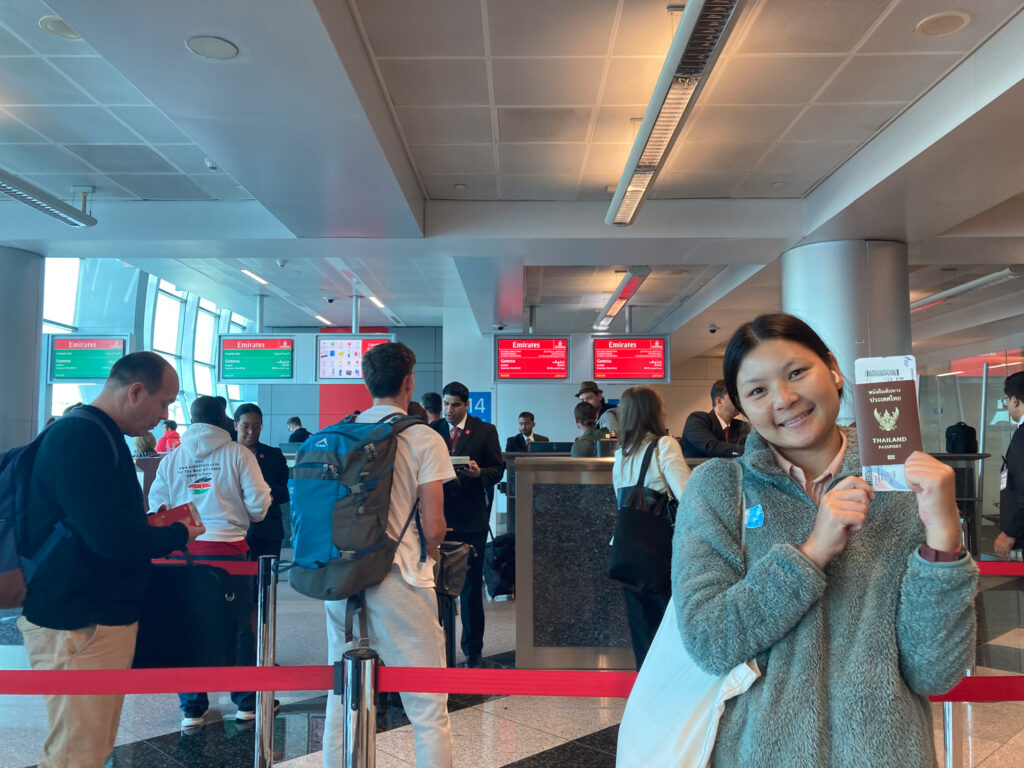
Pornchita about to board her connecting flight to Geneva, Switzerland.
Opening plenary of the forum
On the first day of the forum, my colleagues from EarthRights and I arrived early at the Palais des Nations, which gave us a chance to explore the venue. After that, we went to the session room, grabbed our seats, and waited in anticipation for the forum to start.
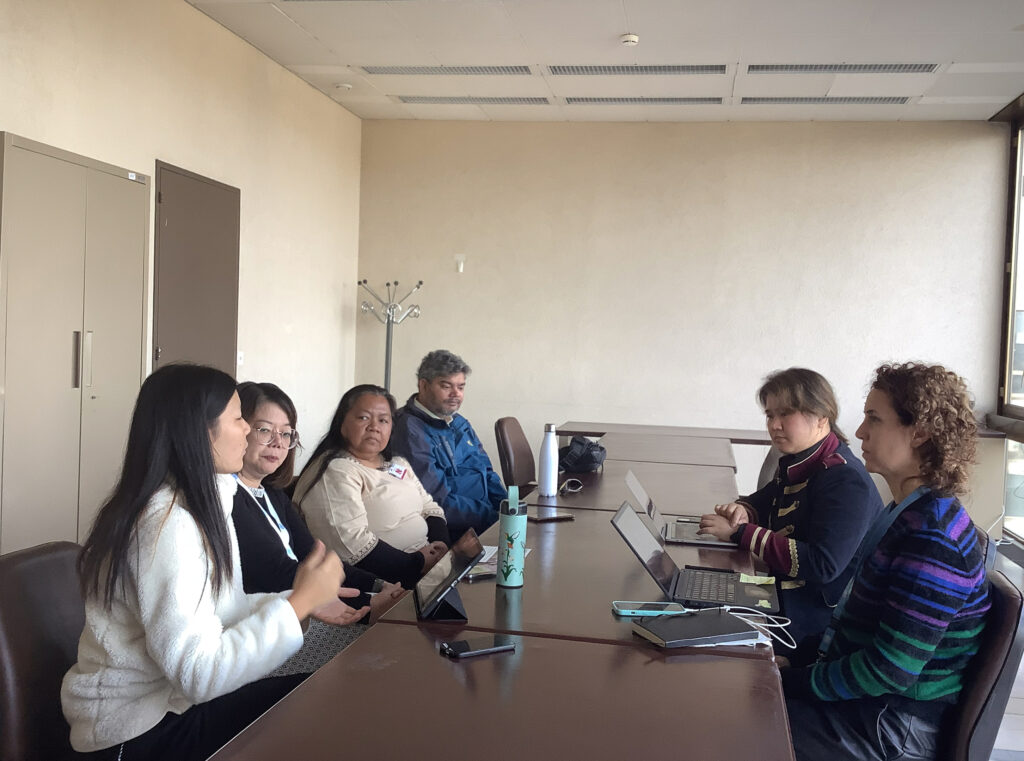
Pornchita (left) talking with the members of the Working Group on Business and Human Rights.
During the opening plenary, Damilola Olawuyi, Chairperson of the Working Group on Business and Human Rights, emphasized the importance of the U.N. Guiding Principles on Business and Human Rights as a standard for ethical business practices to prevent human rights abuses in their operations and provide remedies if such violations take place. He also reminded governments of their critical role in ensuring businesses respect human rights.
Session on just transition in energy and extractive industries
Over three days, I attended various sessions that covered different business and human rights issues. One of the sessions I attended was “Just Transition in Energy and Extractive Industries,” which provided an overview of the environmental and human rights challenges faced by communities in the process of energy transition. The session also discussed the crucial roles of governments and businesses in applying a rights-based approach to ensure an energy transition that is inclusive and just.
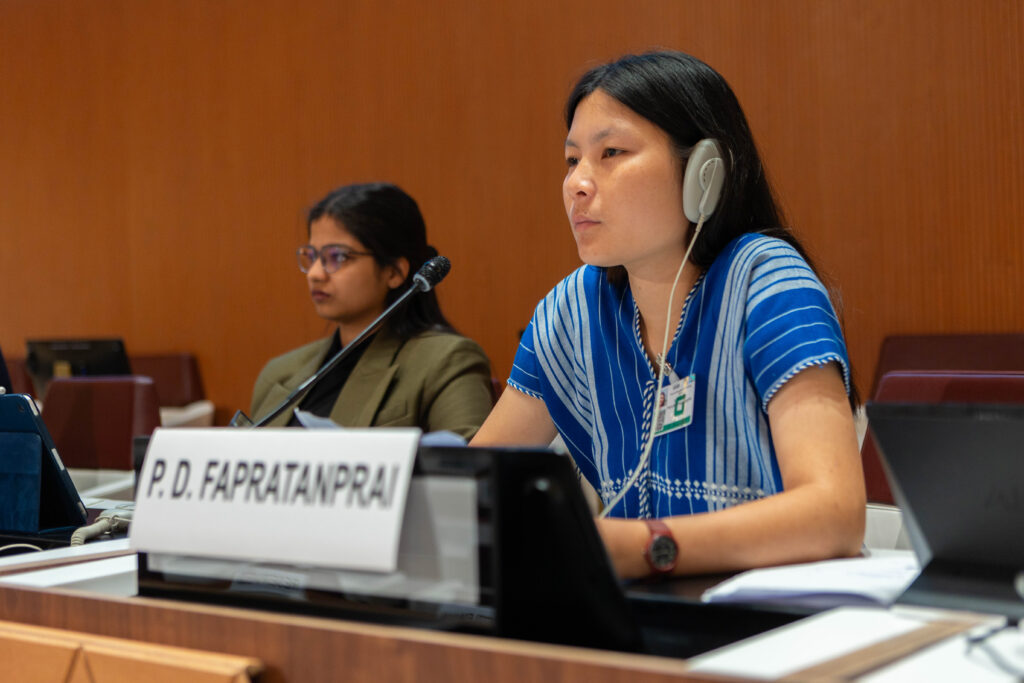
Pornchita with another session panelist.
Session on the role of youth in promoting change in the business and human rights agenda
On the third day of the forum, I had the opportunity to speak at the session “Role of Youth in Promoting Change in the Business and Human Rights Agenda.” I shared my story about how my village, Kaboedin, with abundant natural resources that sustain the lives of the local indigenous population, is under threat of a planned coal mine.
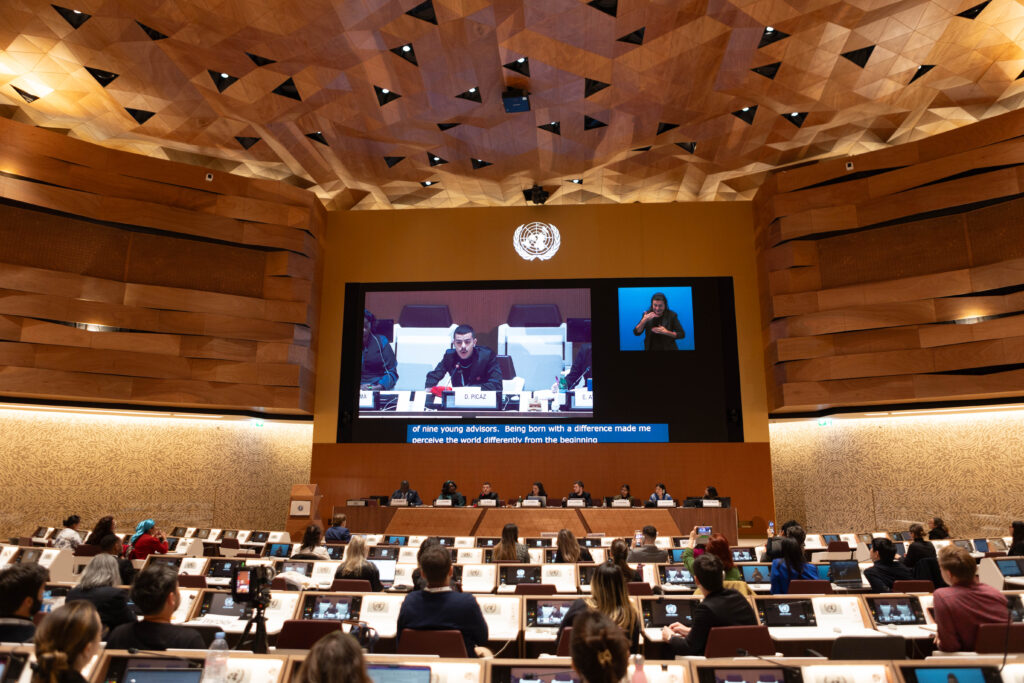
The session on the Role of Youth in Promoting Change in the Business and Human Rights Agenda.
“The project, if built, will impact my village and livelihoods as pollution from the coal mine will contaminate the surrounding environment,” I said.
I also spoke about the campaigns my friends and I held, including disseminating information about the potential impacts of the coal mine, drafting petitions, organizing march protests, and forming a youth-led movement.
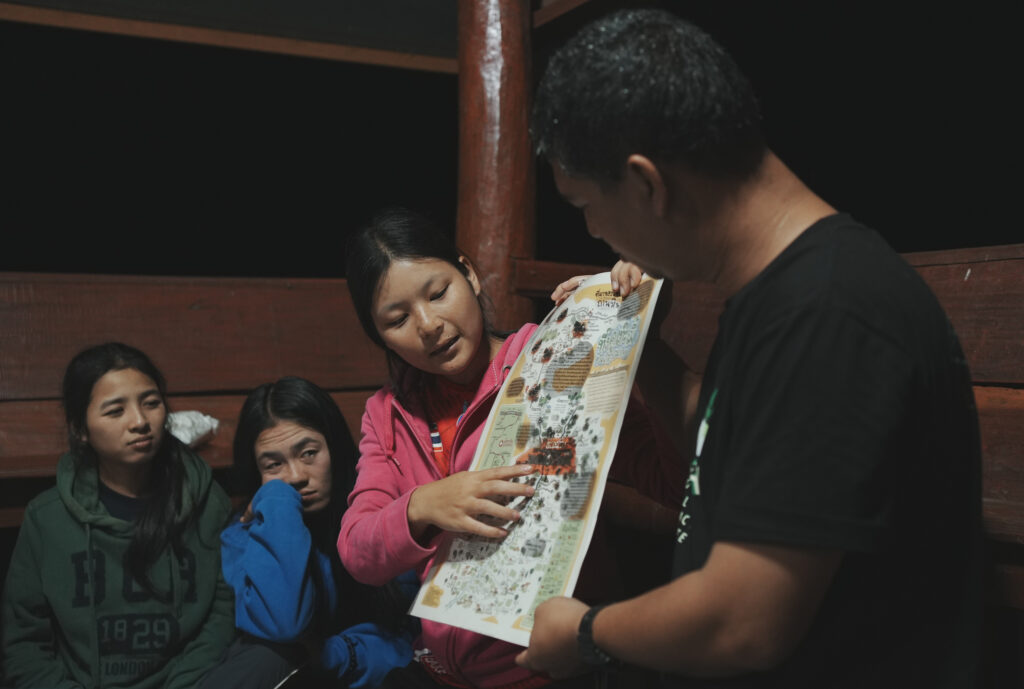
Pornchita showing the map of Kaboedin Village and the possible environmental impacts of the coal mine project.
“We filed a litigation in 2022 requesting to revoke the coal mine project’s Environmental Impact Assessment document. As a result, the local court granted a temporary injunction prohibiting all coal mining project activities until the court makes a ruling,” I added.
Moreover, I highlighted the critical role that youth-led environmental initiatives can play in making businesses accountable for their activities.
“As we work towards a more equitable society, we must support youth-led movements in holding businesses responsible for respecting human rights,” I concluded.
Final reflections and recommendations
Attending the forum was an eye-opening experience for me, and I am grateful for the opportunity to gain a much better understanding of global business and human rights advances and challenges.
I’m now back in Kaboedin village, ready to continue the fight for my community to ensure businesses are accountable for their activities.
In addition, I’d like to share the following recommendations for governments and businesses to work on:
- Stop the construction of mines and related projects that negatively impact the livelihoods of communities. Governments and businesses should involve communities and young people in the decision-making process for large-scale project developments.
- Fairly compensate communities affected by development projects. Communities should be included in the discussions about compensation and remedies.
- Ensure that indigenous communities are able to live a freely determined life. As custodians of the environment, the rights of indigenous communities to protect their lands and resources should be respected.
- Enact laws to protect earth rights defenders who are fighting for their communities.
There is still much work to be done to ensure that businesses prioritize people and the planet over profit.
This blog is written with contributions from Yen Snaing and Wora Suk.





